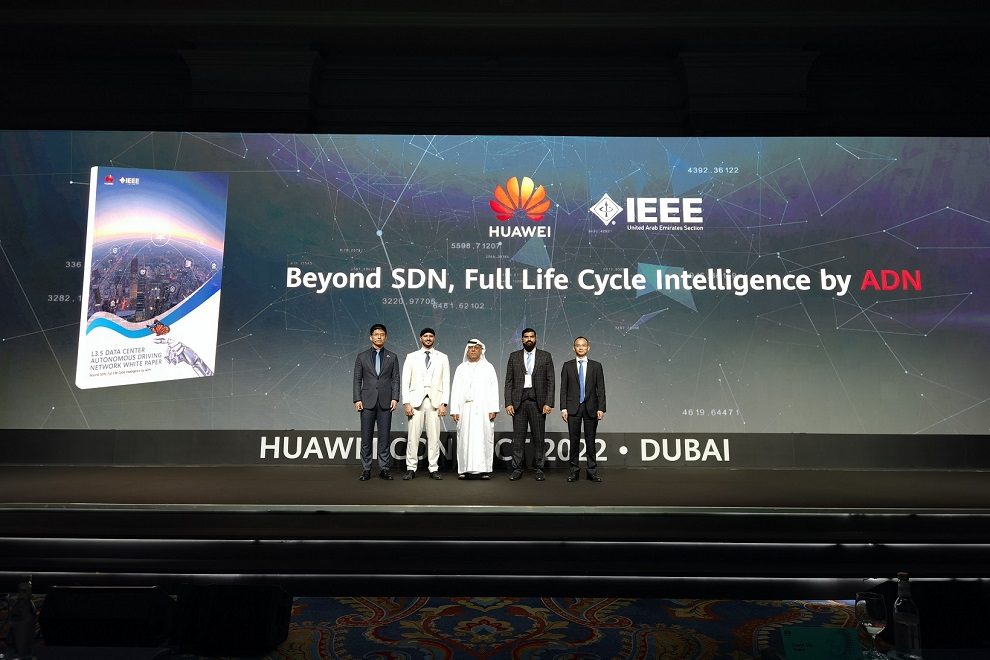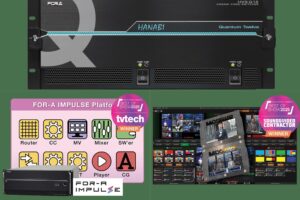Huawei and IEEE-UAE Section have released a joint white paper on Autonomous Driving Networks (ADNs) at the Huawei Connect conference in Dubai. The white paper aims to provide an informative point of reference for ADNs architecture for industry players and customers.
There is still a long way to go before true ADN is achieved. To help reach this goal, in addition to working on standards and technologies, all stakeholders need to continuously deepen the ADN evaluation system to drive network upgrades towards automation and intelligence and evolve across generations.
The new L 3.5 ADN data center white paper sets an industry standard for the future. Data center complexity is one of network managers’ most pressing challenges today. The white paper demonstrates that automation can overcome these bottlenecks at scale and enable organizations to achieve true digital transformation.
The white paper illustrates the five levels of ADN, the key capabilities of ADN, and the ADN system’s architecture. As such, the L3.5 ADN offers a network digital map for applications, which can measure service quality in real time and locate the root causes of application exceptions with just one click. This shortens the troubleshooting time from days to minutes, guaranteeing optimal service experience.
Arthur Wang, Vice President of Huawei’s Data Center Network Domain said, “In recent years, Huawei has remained committed to researching and making breakthroughs in key ADN technologies and exploring typical scenarios and has achieved remarkable results. Huawei will continue working closely with industry players and customers to build consensus, share experience, and collaborate in innovation to ultimately evolve towards network autonomy.”
The digital economy has emerged as a critical enabler for economic growth globally. However, as digitization gains momentum, the operating expense associated with running enterprise data centers continues to soar as networks expand. This is because network operations still rely heavily on personal experience and skills during the planning, construction, maintenance, and optimization phases – about 30 engineers are required for the operation and maintenance (O&M) of every 1000 devices in a data center. In addition, data center networks (DCNs) also face significant challenges in managing service experience, as more than half of the user complaints received by the network department are related to that.
Huawei Level 3(L3) data center autonomous driving network has achieved high-level automation in data center network to overcome these challenges. Being industry’s first Level 3.5 Data Center Autonomous Driving Network Solution implements high-level automation capabilities such as unified management, flexible orchestration and collaboration, and simulation in multi-cloud and multi-vendor networks, in addition to interconnecting with customer’s IT management systems to achieve end to end automation. While most industry solutions still talk about simple automation Huawei’s Level 3.5 ADN is a perfect roadmap for our customers to achieve fully autonomous driving networks in the near future.
Huawei is open to partnering with industry players to build consensus, apply innovative approaches, and move forward together to promote the large-scale application of network AI technologies and advance data center networks into the ADN era featuring agile business, ultimate experience, and efficient O&M.












